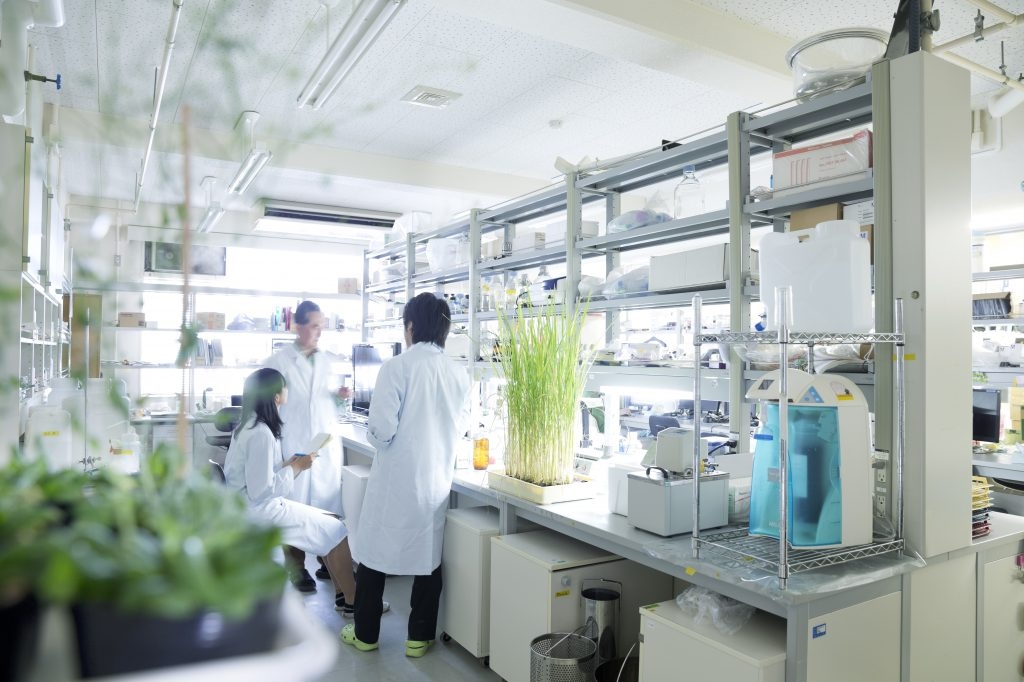The total global population is increasing at a tremendous rate. Together with this, hunger and malnutrition are also increasing, becoming a serious, worldwide problem which requires a stable food production system to address.
The researchers in the Kuchitsu Laboratory in the Faculty of Science and Technology, Department of Applied Biological Science and Interdisciplinary Agricultural Science & Technology Course believe that crucial clues to solving the food, environmental and energy challenges that we face are to be found through a better understanding of how plants live. There is much that we still do not understand, and the researchers in the Kuchitsu Laboratory are focused on uncovering the living systems of plants in order to apply this knowledge to food and farming.
For example, research in recent years has focused on understanding cellular autophagy (“self-digestion” within cells) and how it contributes to improved rice quality and yield of rice.
Global warming and other environmental stresses are creating a major problem for society in terms of reduced rice quality and yield. The researchers in the Kuchitsu Laboratory have discovered that rice which lacks the ability to perform proper autophagy will not produce pollen efficiently, thereby hindering grain production; in other words, autophagy is critical for maturation of pollens and seeds in rice.
Thus, if we can artificially control autophagy, we can likely put the brakes on the decline in grain quality and yield of rice.

Research has also revealed the indispensability of reactive oxygen species to plant life.
For humans, reactive oxygen are toxic substances in our bodies. For plant as well, too much reactive oxygen species will hinder growth, but it has also been found to promote a variety of different plant functions, notably nutritional absorption by root hairs (the fine, hairlike structures that grow from roots) and elongation of the pollen tube necessary for fertilization.
In other words, reactive oxygen species is a double-edged sword, and understanding the mechanisms of its operation within plants will likely open the door to develop novel plant biotechnology of the future.
Human activity is pushing the earth past its limits, and, in our current era of major change, issues of food, the environment and energy are only likely to grow in importance. We must, therefore, continue to deepen our understanding of the plants upon which our food and environment depend and to expand our research into how to effectively utilize the power of plants. In the Kuchitsu Laboratory, researchers are moving forward with research into the creation of “plant supplements” which will increase immunity to disease and environmental stress.
Also, through the Interdisciplinary Agricultural Science and Technology Course established in the Faculty of Science and Technology, an interdisciplinary collaboration between biology and engineering is being utilized to cultivate students who possess multi-faceted expertise as they expand the scope of research which seeks to harness the power of plants.
■ Main research content